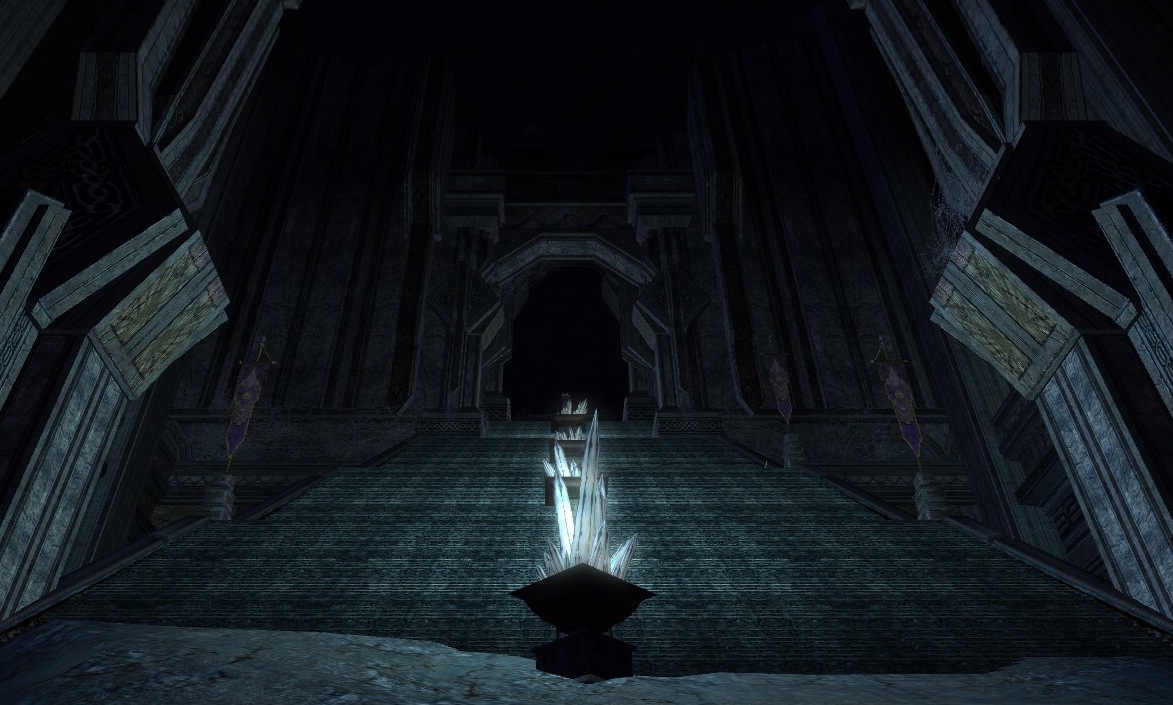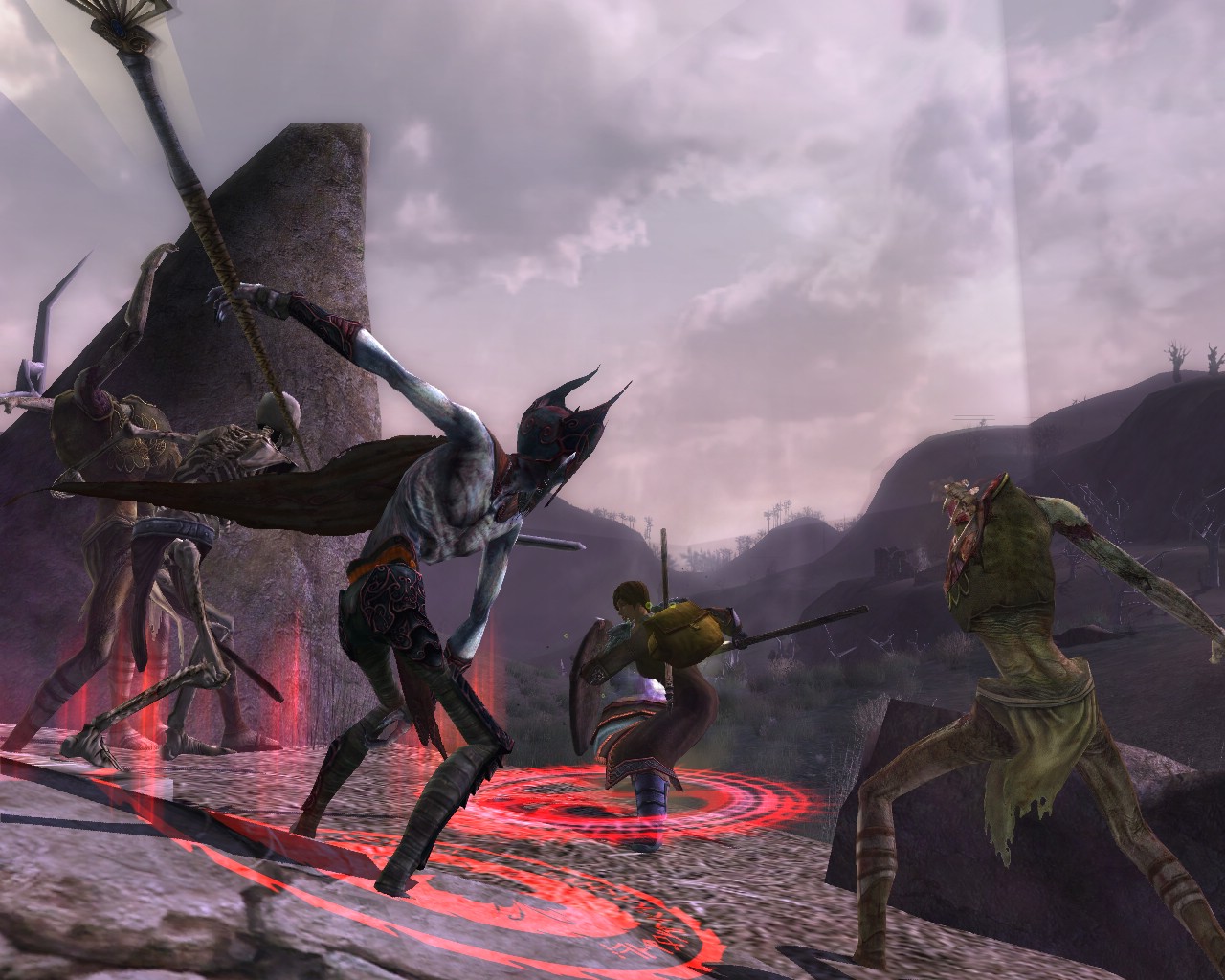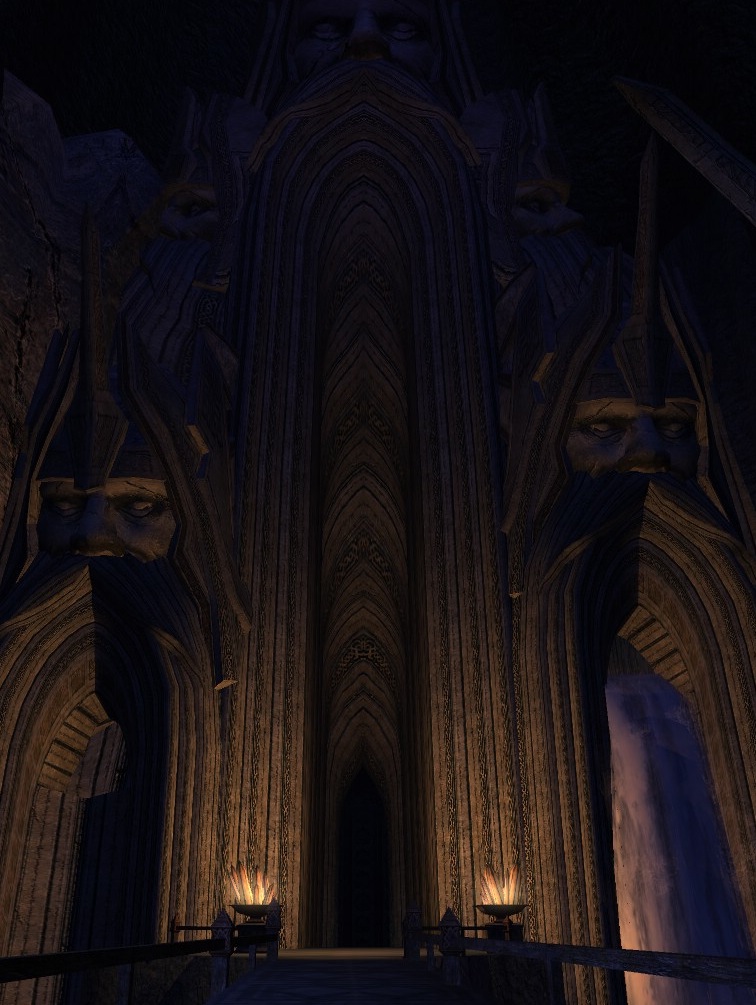The game I’ve been playing the most, without a doubt, and for something like the past year, is Lord of the Rings Online. I’ve written about it around here before, and I’ll write about it again soon. More fun than reading about the game, though, is playing it. So let’s get you started.
We’ve got a free copy of the Complete Edition of Lord of the Rings Online: Mines of Moria to give away to a Gameplaywright reader, just in time to make a great belated holiday gift for yourself.
Update: The contest is now closed and I’m going through the posts here and the emailed submissions I got and picking a winner this weekend. With not a single bad entry in the bunch, this is going to be tough. Wonderfully tough. Thanks to everyone who entered!

Climb the Stairs Into the Mines of Moria
Here’s what you do: Tell us what you think about massively multiplayer online roleplaying games (MMORPGs). Write a brief lesson or nugget of truth you’ve learned about MMORPGs or by playing MMORPGs. This lesson can be about games and design, or it can be about life, love, honesty, fairness, victory, defeat, patience, comedy, overcoming a deep-seated suspicion that MMOs would kill RPGs, or anything else you’ve learned either by playing an MMORPG or by staunchly refusing to do so… until now.

Battle fearsome monsters for the fate of Middle-earth.
We’re looking for short, direct statements in the style of those from our newest book, Things We Think About Games. For example, Thing #28:
When playing a game, be aware that the other players are not necessarily playing for the same reason(s) that you are.
You might be playing to compete, but the guy across the table might only have joined to hang out with the group, or bathe in the theme, or poach your girlfriend. Even among those who are “playing to play” there are different spins. Playing to win, playing to make sure everybody has fun, playing to broaden the experience.
If you haven’t read our book yet, that’s okay — the winner gets a copy of the book, too!
Keep your lessons short and sharp. For example, see Thing #68:
A game, as a creative work, has no responsibility to historical or scientific accuracy.
Once you’ve got a lesson in mind, here’s what to do: Either post your lesson in the comments at the end of this post or send it in an email to lotro (the @ sign) gameplaywright (dot) net. The author of the lesson we like best — whether it’s cunning or surprising or sassy or bold or anything else we like — gets a Complete Edition of Lord of the Rings Online: Mines of Moria, containing the original game, the new Mines of Moria expansion, all content updates leading up to the release of Mines of Moria, 30 days of free play time, and more. Plus, the winner gets a free copy of Things We Think About Games.
Comments and emails must be received by 11:59pm on December 30th to be eligible. We’ll notify the winner by email, so include a valid email address with your entry.
Spread the word that we’re giving stuff away over here!

Discover the legendary works of the Dwarves.

The Game Does Not Miss You.
A lesson reluctantly accepted is that the cumulative time spent playing a game is driven less by the game itself and more by the player. When we walk away from the table or log off from the server, the game itself does not miss us. In fact, more and more MMOs are rewarding the player for time spent away from the game. And yet, many of us still burn the midnight oil, losing sleep and shunning reality, grinding away for the sake of a virtual world that would continue with or without our participation.
(By the way … Will H., have you retrieved your Ficlets yet? As of January 15, they’ll be gone, along with the rest of the site.)
Games – like all kinds of art – are insperable from technology.
As someone far too poor to afford a computer build in the last decade, let alone subscribe to an MMO, I’m accutely aware that I’m being left in the dark ages of gaming. But even if you aren’t, it’s worth remembering that tech and gaming are inseperable. Sometimes people complain that new tech brings only new graphics and thus is immaterial to concepts like gameplay, but the tech does provide the necessary minimum. Without computers, without the internet, there are no MMOs. Without graphics, MMOs are effectively MUDs. Tech is not just an adjunct to gameplay, it defines gameplay.
There is a difference between an “introductory game” and a game that is perfect for “introducing your friend to gaming.”
There are many great games written for the novice, or neophyte, gamer, but many of these games have less than universal appeal. When selecting a game to introduce your non-gaming friends to the gaming hobby, it is best to choose a game that has broad appeal than to choose a game that is easy to learn. If you know the game intimately, you can teach your friends how to play easily enough.
You have 15 minutes to make an impression.
It doesn’t matter how good your raid content is. It doesn’t matter if you have the best story in the universe. If the first 15 minutes of play aren’t polished, bug free, and attention-getting, you’ve already lost your audience. Holds true for MMO’s, and holds true for just about everything else in life.